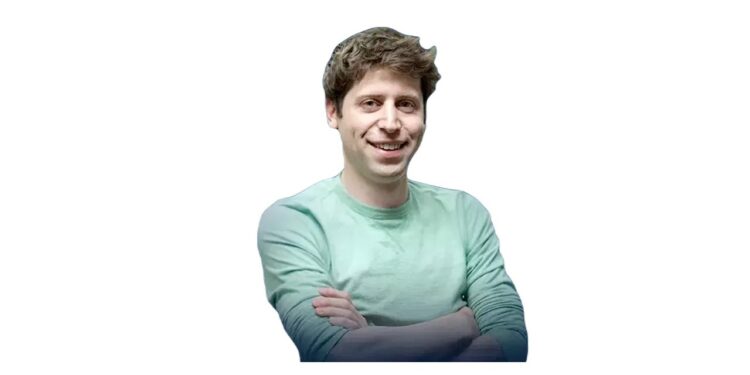1. “The Master Algorithm: How the Quest for the Ultimate Learning Machine Will Remake Our World” by Pedro Domingos

Navigate the chaos of information.
Nate Silver dives into the overwhelming world of data and predictions, separating the signal from the noise. This isn’t just about statistics; it’s about understanding what truly matters.
”In an era of information overload, Silver teaches us how to find clarity.”
This book equips readers with the tools to discern truth in a sea of data, emphasizing the importance of critical thinking in the digital age.
2. “Antifragile: Things That Gain from Disorder” by Nassim Nicholas Taleb

Embrace the chaos.
Nassim Nicholas Taleb introduces us to a concept that’s not just revolutionary, but vital: antifragility. Forget about merely surviving disorder; this is about thriving in it.
“In a world obsessed with stability, ‘Antifragile’ teaches us to find strength in uncertainty.”
Taleb doesn’t just theorize; he provides a manual for living in a world governed by unpredictability.
This book challenges the reader to reconsider their understanding of resilience, urging them to see volatility as an opportunity, not a threat.
3. “Reality Is Not What It Seems: The Journey to Quantum Gravity” by Carlo Rovelli

Step into the quantum realm.
Carlo Rovelli takes us by the hand and leads us through the looking glass into a world where space, time, and reality itself are not what they seem.
“Diving into the heart of the universe, Rovelli redefines the fabric of reality.”
This book is a voyage to the very edge of physical understanding, exploring the potential of quantum gravity to unravel the mysteries of the cosmos.
It’s not just a book; it’s an invitation to dream of possibilities beyond our current grasp.
4. “Sapiens: A Brief History of Humankind” by Yuval Noah Harari

Rethink our past to reshape our future.
Yuval Noah Harari offers a sweeping narrative of humanity’s history, but with a twist. He doesn’t just recount events; he explores how our cognitive evolution has shaped the world.
“From tribes to empires, ‘Sapiens’ challenges us to look beyond history’s facts and focus on its lessons.”
Harari’s work is a call to action, urging us to use our understanding of the past to navigate the future more wisely.
5. “The Signal and the Noise: Why So Many Predictions Fail — but Some Don’t” by Nate Silver

Navigate the chaos of information.
Nate Silver dives into the overwhelming world of data and predictions, separating the signal from the noise. This isn’t just about statistics; it’s about understanding what truly matters.
“In an era of information overload, Silver teaches us how to find clarity.”
This book equips readers with the tools to discern truth in a sea of data, emphasizing the importance of critical thinking in the digital age.
6. “The Innovators: How a Group of Hackers, Geniuses, and Geeks Created the Digital Revolution” by Walter Isaacson

Witness the birth of a revolution.
Walter Isaacson chronicles the collaborative genius behind the digital age, showcasing how innovation is often a team sport.
“Exploring the human stories behind digital breakthroughs, ‘The Innovators’ is a testament to creativity and collaboration.”
This book isn’t just a history lesson; it’s an inspiration for future innovators to build on the past’s legacy.
7. “Thinking, Fast and Slow” by Daniel Kahneman
Unlock the mysteries of the mind.
Daniel Kahneman presents a groundbreaking look at how we think, revealing the dual processes that drive our judgments and decisions.
“Challenging our intuition, Kahneman shows us the power and pitfalls of the mind.”
This book is an essential guide for anyone looking to understand the complexities of human reasoning and to make better choices.
8. “Guns, Germs, and Steel: The Fates of Human Societies” by Jared Diamond

Discover the engines of history. Jared Diamond explores the factors that have shaped human history, from the Stone Age to the modern world, challenging the notion of ‘civilizational superiority’.
“In a narrative that spans continents and epochs, Diamond decodes the patterns that have determined the course of human history.”
This book is a profound reminder of the interconnectedness of our world and the factors that drive societal success or failure.
9. “Homo Deus: A Brief History of Tomorrow” by Yuval Noah Harari

Venture into tomorrow.
Yuval Noah Harari returns to explore the future of humanity, pondering the new gods of the 21st century — data and algorithms.
“Harari asks: What happens when technology knows us better than we know ourselves?”
‘Homo Deus’ challenges readers to consider the implications of our growing reliance on AI and big data in shaping our futures.
10. “The Age of Surveillance Capitalism: The Fight for a Human Future at the New Frontier of Power” by Shoshana Zuboff

Face the future of power.
Shoshana Zuboff unveils the dark side of digital innovation, exposing how tech giants are turning personal data into a commodity.
“In an era where privacy is under siege, Zuboff sounds the alarm on the dangers of unchecked tech dominance.”
This book is a crucial read for anyone concerned about the balance between technological advancement and individual rights.
Source: Medium



Recent Comments